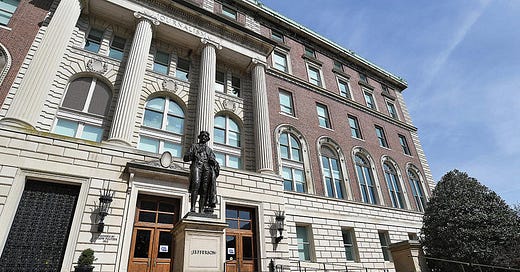About that time I got blackmailed into teaching at the Columbia Graduate School of Journalism. Without a degree.
The Best of Perfecting Equilibrium
Editor’s Note: Thursday is the Fourth of July US holiday, and Your Humble Correspondent is taking the week of the 8th off to hang with the fam. While we’re on vacation we’ll schedule issues of the Best of Perfecting Equilibrium from our archives; new content will resume July 18. Have a great holiday!
This piece originally ran July 23, 2023
Keep reading with a 7-day free trial
Subscribe to Perfecting Equilibrium to keep reading this post and get 7 days of free access to the full post archives.




